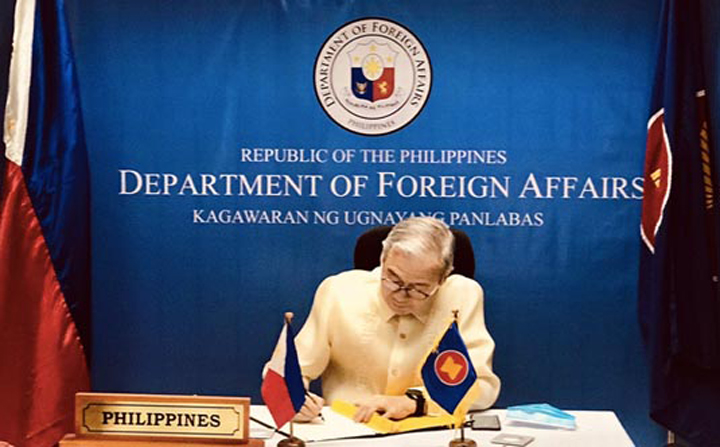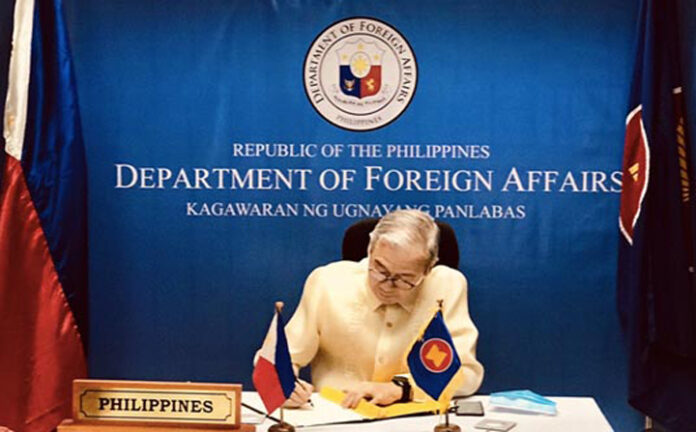
Image credits: DFA
THE Philippines formally joined 59 other countries that expressed grave concern about the use of arbitrary arrest or detention of foreign nationals by states to gain unnecessary leverage over their governments, contrary to international law.
Foreign Affairs Secretary Teodoro L. Locsin Jr., signed on to the declaration against arbitrary detention in state-to-state relations during a social-media appearance.
“By signing on to this declaration, we lend our voice to a chorus of nations calling for the release of foreign nationals who are arbitrarily detained by foreign states and urging all states to refrain from this reprehensible practice.”
“We stand in solidarity with countries whose nationals have been detained by other states seeking leverage over them,” he added.
A netizen tweeted congratulated Locsin, saying, “At the time the Universal Declaration of Human Rights was opened for signature it was not binding, but thanks to the visionaries who signed it, most of its provisions are now customary and conventional law. Congratulations for the vision.”
Fr. Ranhilio Aquino, noted constitutionalist and law dean, replying to Locsin, said, “Detention of foreign nationals by aggressive states to gain leverage against the States of origin of such detained nationals is wrong on two fronts: first, it is a violation of human rights; second, it constitutes aggression against the State whose nationals are detained.
Locsin replied, “I was told not to sign because it is non-binding. I said good things start that way: optional. Until avoiding the norm makes you look like a [expletive] jungle bunny; then almost like an afterthought it becomes binding law.”
Fr. Aquino said, “I have no doubt that this proscription will soon coalesce into jus cogens: a peremptory norm of international law.”
The declaration, launched last February 15, was led by Canada, which has accused China of arbitrarily detaining its nationals Michael Kovrig and Michael Spavor.
It aims to protect citizens of all countries who live, work and travel abroad and calls upon states to take “concrete steps” to prevent and put an end to harsh conditions in detention, denial of access to legal counsel, torture, and other inhuman treatment or punishment.
However, it was Canada that first detained Huawei Chief Financial Officer Meng Wanzhou two years ago at the Vancouver airport, when she was arrested by Canadian police.
She faces extradition to the US where she has been charged with bank and wire fraud.
Meng, 48, has remained under house arrest in Vancouver and claims she’s innocent of the fraud charges for allegedly misleading HSBC about Huawei’s business dealings in Iran.
The arrest on December 1, 2018, followed strong trade policies lodged by the Trump administration against Chinese companies, including Huawei, one of China’s largest companies and the world’s largest telecoms equipment maker.
Supporters of Huawei and Meng, also known as Sabrina Meng, believe she is the victim of politics and said the charges against her do not follow normal US Department of Justice procedures.
Read full article on BusinessMirror

